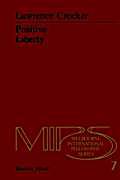What are some examples of normative ethics? What is an example of normative theory? It includes the formulation of moral rules that have direct implications for what human actions, institutions, and ways of life should be like. The following are examples of normative statements : Everyone should get a formal education.
Kindness is a virtue. Raising and killing animals for their meat is wrong. The philosophical area most distinctively concerned with normativity , almost by definition, is ethics. Although there is certainly some overlap in those three distinctions, I shall separate them ever so slightly. An example of an empirical question is whether people tend to act in an altrustic manner.
Normative is typically contrasted with empirical or factual. The largest current controversy in normative ethics is how to determine whether a particular act is right or wrong. Consequentialists believe that an act is right if it leads to good consequences or maximizes good consequences. Hypotheses or other statements about what is right and wrong, desirable or undesirable, just or unjust in society.
The majority of sociologists consider it illegitimate to move from explanation to evaluation. In their view, sociology should strive to be value-free, objective, or at least to avoid making explicit value-judgements. In philosophy , normative statements make claims about how things should or ought to be, how to value them, which things are good or ba and which actions are right or wrong. The most prominent of these is utility theory, founded on a set of intuitively appealing axioms.
It describes options in terms of a set of attributes, or features, that an individual might like or dislike about them. Ross advocated an ethics based on mutually independent duties. Important normative theories Utilitarianism. Classical utilitarianismsays that the right actionis that which produces the greatest balance of overall. Kantian ethics stems from the work of the great Germanphilosopher Immanuel Kant.
Ethical intuitionism. Moral standards are the yardsticks of business ethics. The category of analytic ethics, also often referred to as metaethics, is perhaps the most difficult of the three to understand. The Normativity of Meaning and Content 1. Interpretations of the Normativity Thesis.
Normativism in the theory of meaning and content is the view that. We have distinguished two ways in which normativism about meaning can be understood: ME normativism and MD. They are the result of re ection and analysis. They cannot depend on data about what people do in particular cases, or on intuitions about what people ought to do, which must also be subject to criticism. As this description suggests, normative philosophy of law covers a vast territory.
A great deal of scholarship in the social sciences and humanities is normative. Answer: The philosophy of ethics is the study of how humans act and why they act the way they do. Metaethics is the study of the terms and metaphysical considerations of ethical concepts, and is usually too esoteric and academic to actually be useful.
Any subject of philosophy is open for interpretation, but there are generally four basic schools of secular normative ethics. Each religion may be said to have their own framework as well, but for the sake of relevance, only secular and Christian ethics will be considered. In normative ethics, the chapter focuses on the distinction, among theories of right action, between consequentialism and non-consequentialism, as well as the distinction between theories of right action and other kinds of normative theory, such as rights theory, virtue theory, and the ethics of care.

In normative philosophy , philosophers make statements about the way the world should be, how things should be done, or the way you should think. This article discusses expected utility theory as a normative theory—that is, a theory of how people should make decisions. A “claim” is statement that asserts something that could be either true or false. A DESCRIPTIVE claim is a claim that asserts that such-and-such IS the case.
A NORMATIVE claim, on the other han is a claim that asserts that such-and-such OUGHT to be the case. In general, we call a theory “normative” if it, in some sense, tells you what you should do - what action you should take. If it includes a usable procedure for determining the optimal action in a given scenario.

A theory is called non-normative if it does not do that.
No comments:
Post a Comment
Note: only a member of this blog may post a comment.